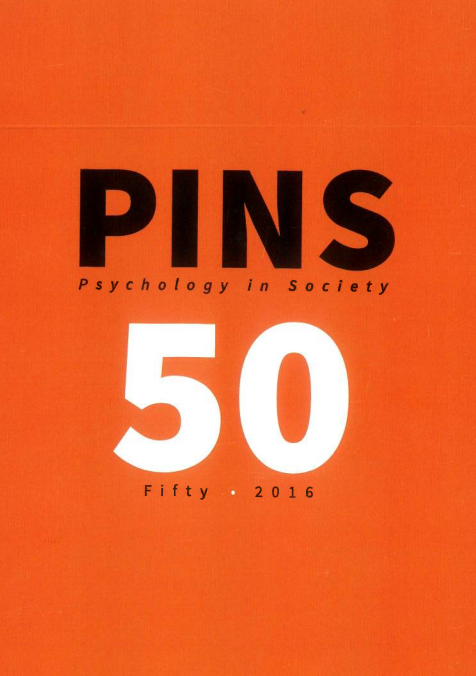Sobukwe and the psychosocial
DOI:
https://doi.org/10.17159/2309-8708/2016/n50a2Keywords:
Sobukwe, Biko, Black Consciousness, consciousness, psychosocial studiesAbstract
The political writings of Robert Mangaliso Sobukwe, like those of Anton Muziwakhe Lembede and Steve Bantu Biko, are shot through with psychological notions (ideas of consciousness, mental emancipation, psychological enslavement, self-realization, the African personality, etc.). The use of such terms is not psychological in a strict disciplinary sense, yet it is nevertheless of crucial psychosocial relevance for a number of reasons. Firstly, such a borrowing of terms necessarily breaks down the partitioning of the psychical and the political. Secondly, by being extracted from the discourse of psychology and subjected to a psychosocial application, these terms are rendered politically operative and put to immediate socio-political use as part of the struggle against white supremacy. Thirdly, the psychological vernacular historically deployed by Sobukwe, Lembede and Biko, effectively called attention to aspects of the struggle not adequately foregrounded by political vocabularies of the time. It was in this way that the aligned discourses of African Nationalism and Black Consciousness as realized in the writings of Sobukwe, Lembede and Biko, sought to overcome an otherwise flawed mode of political resistance – the gradualist, petitioning stance of the African National Congress in the 1950s – with something altogether more radical.
Downloads
Downloads
Published
How to Cite
Issue
Section
License
This journal is an open access journal, and the authors' and journal should be properly acknowledged, when works are cited.
Authors may use the publishers version for teaching purposes, in books, theses, dissertations, conferences and conference papers.
A copy of the authors’ publishers version may also be hosted on the following websites:
- Non-commercial personal homepage or blog.
- Institutional webpage.
- Authors Institutional Repository.
The following notice should accompany such a posting on the website: “This is an electronic version of an article published in PINS, Volume XXX, number XXX, pages XXX–XXX”, DOI. Authors should also supply a hyperlink to the original paper or indicate where the original paper (http://www.journals.ac.za/index.php/pins) may be found.
Authors publishers version, affiliated with the Stellenbosch University will be automatically deposited in the University’s’ Institutional Repository SUNScholar.
Articles as a whole, may not be re-published with another journal.
The copyright of the article(s) lies with the author(s).
The copyright of the journal lies with PINS-psychology in Society.
The following license applies:
Attribution CC BY-NC-ND 4.0 - https://creativecommons.org/licenses/by-nc-nd/4.0/

